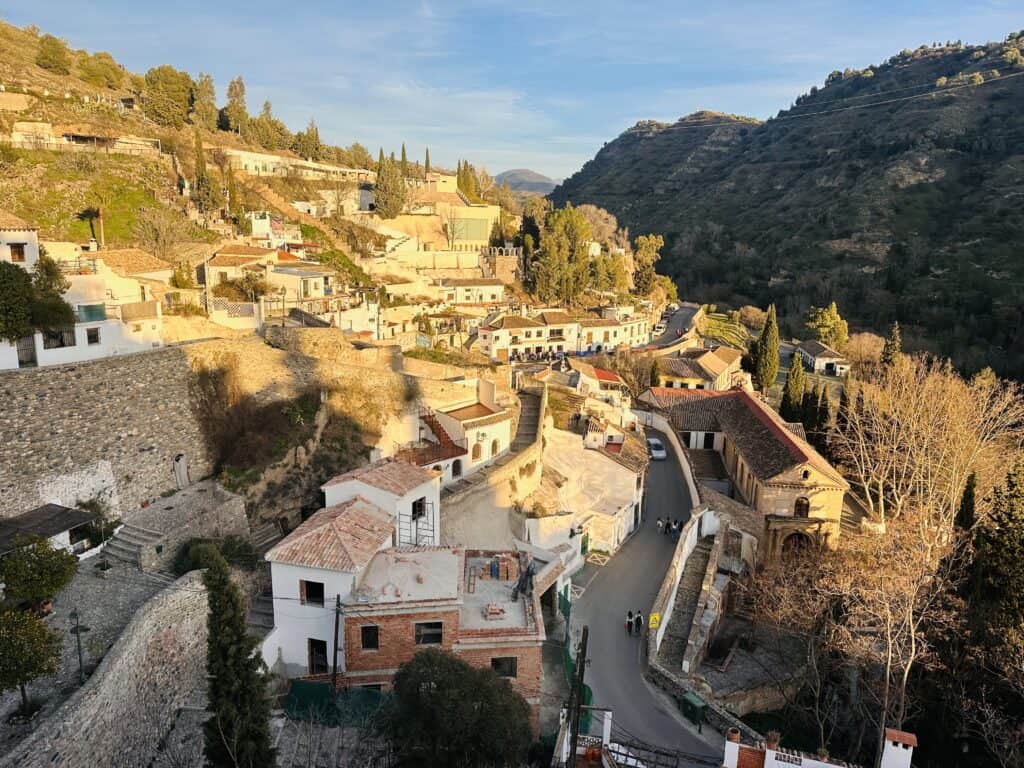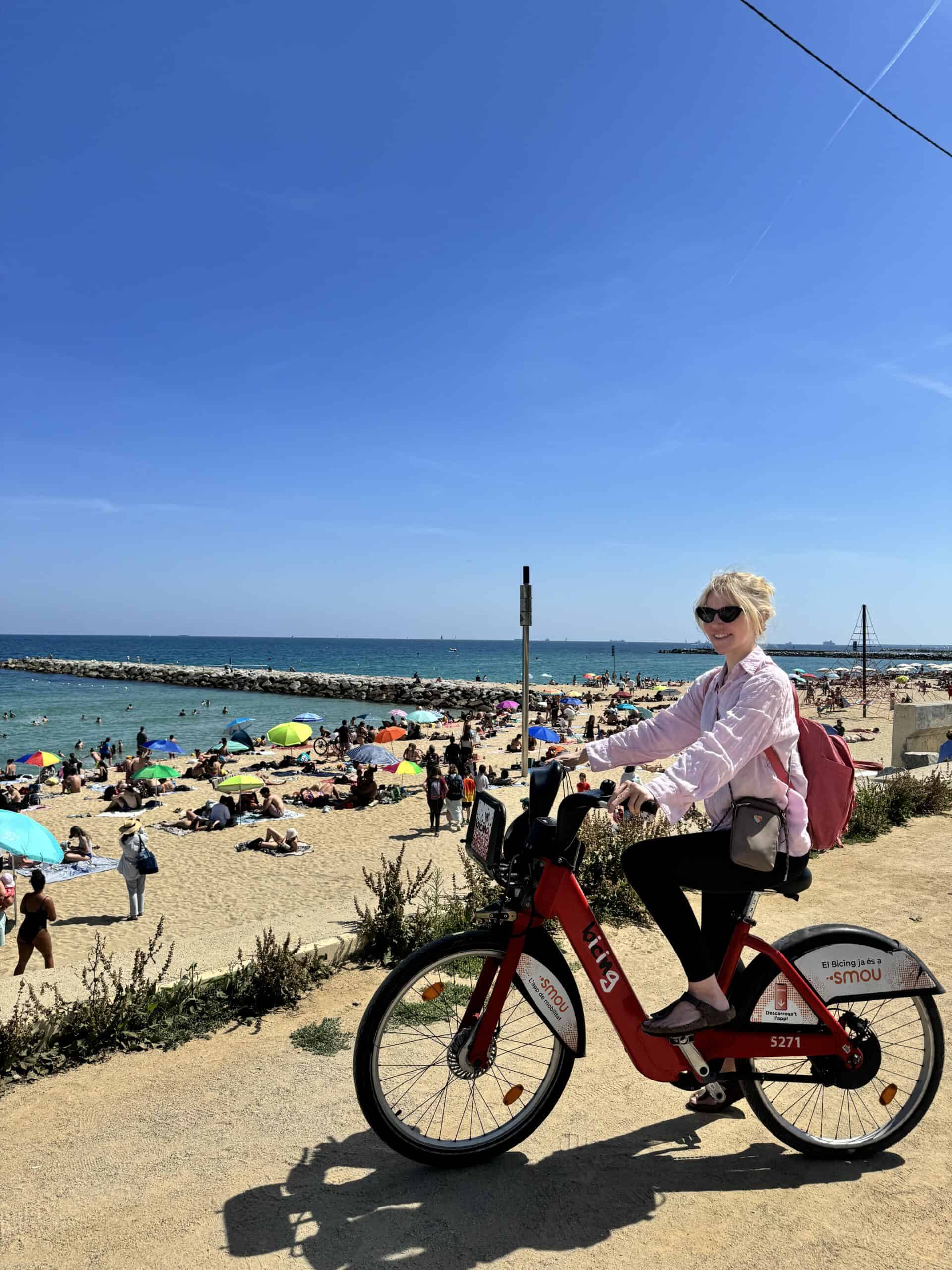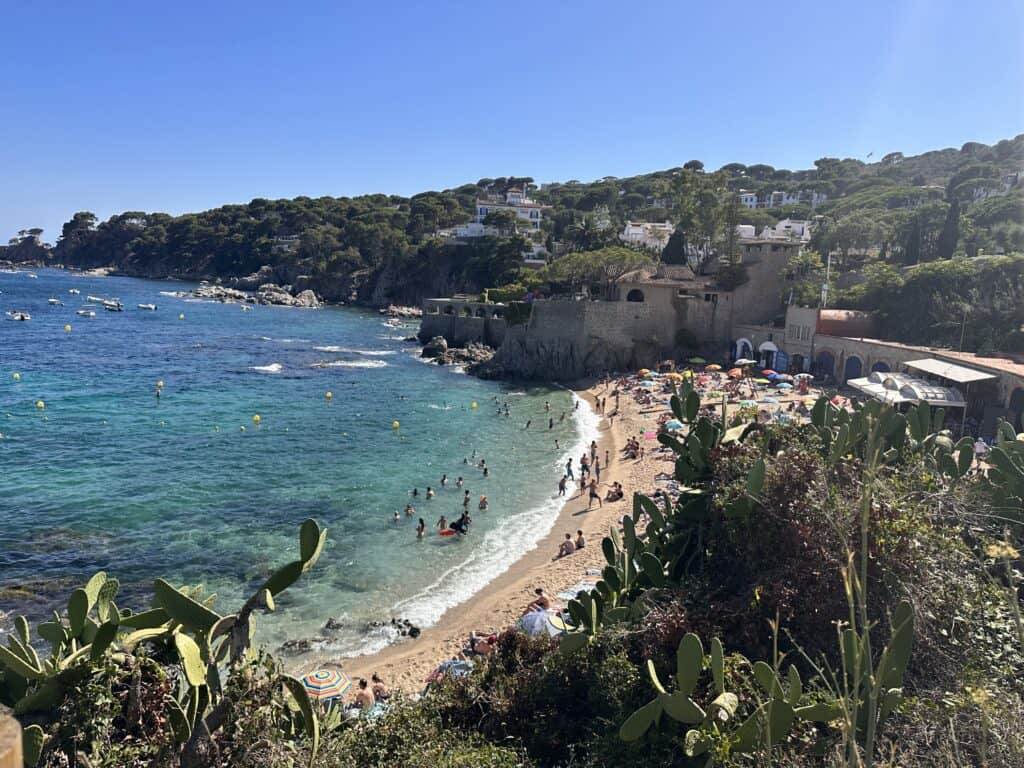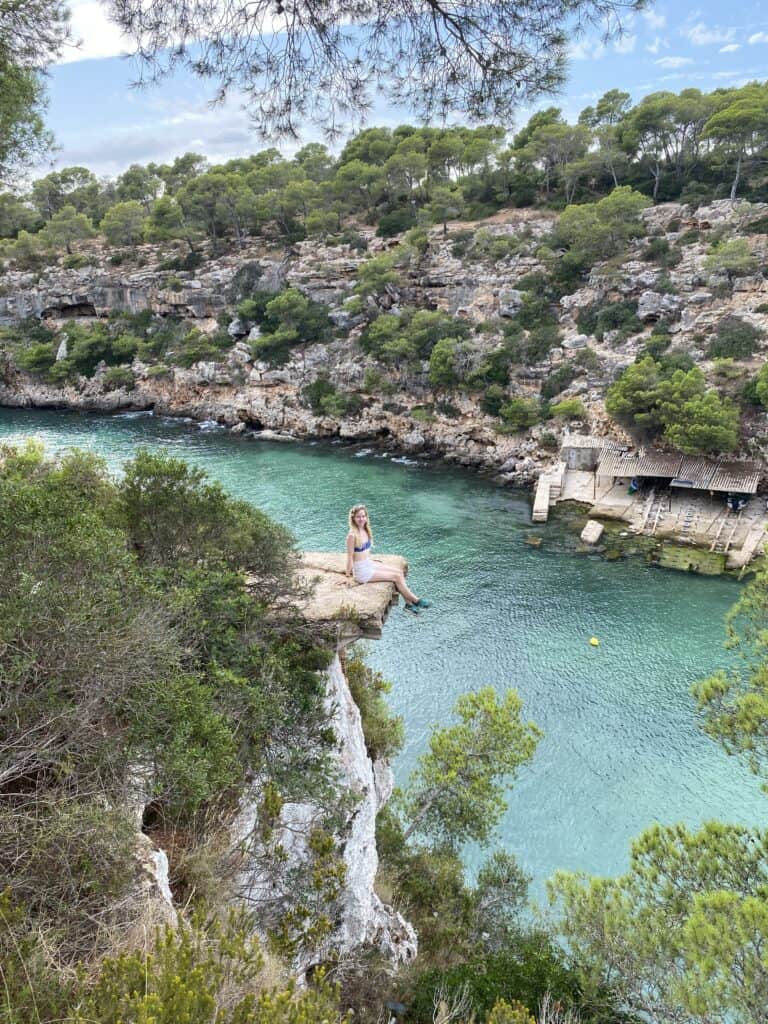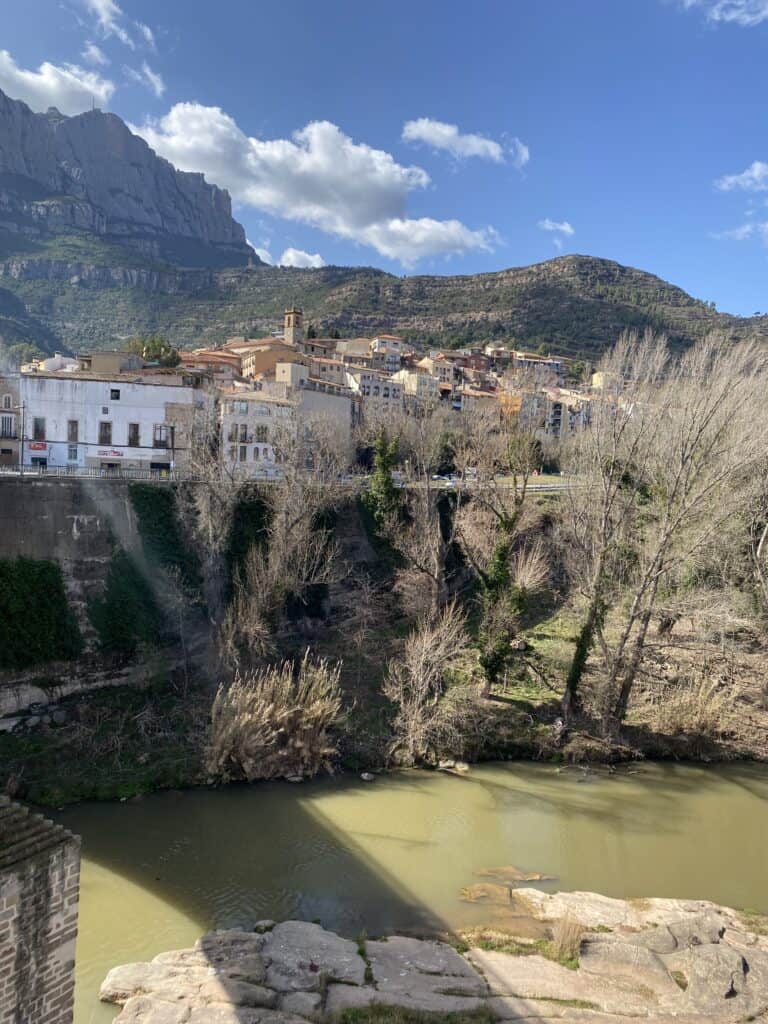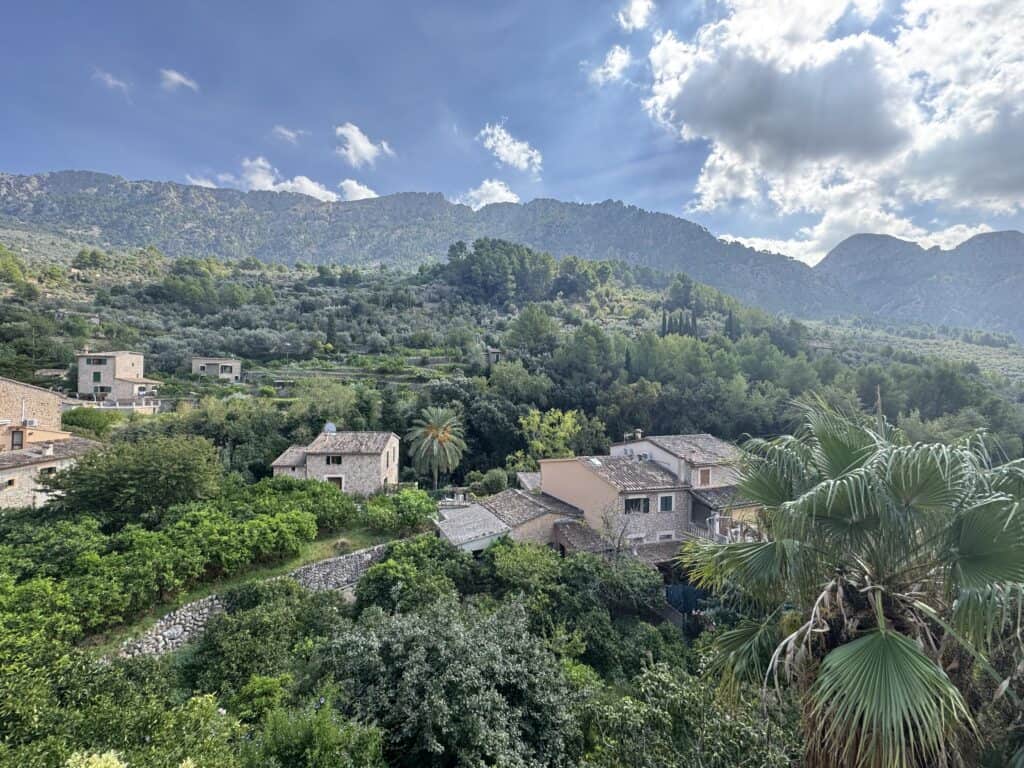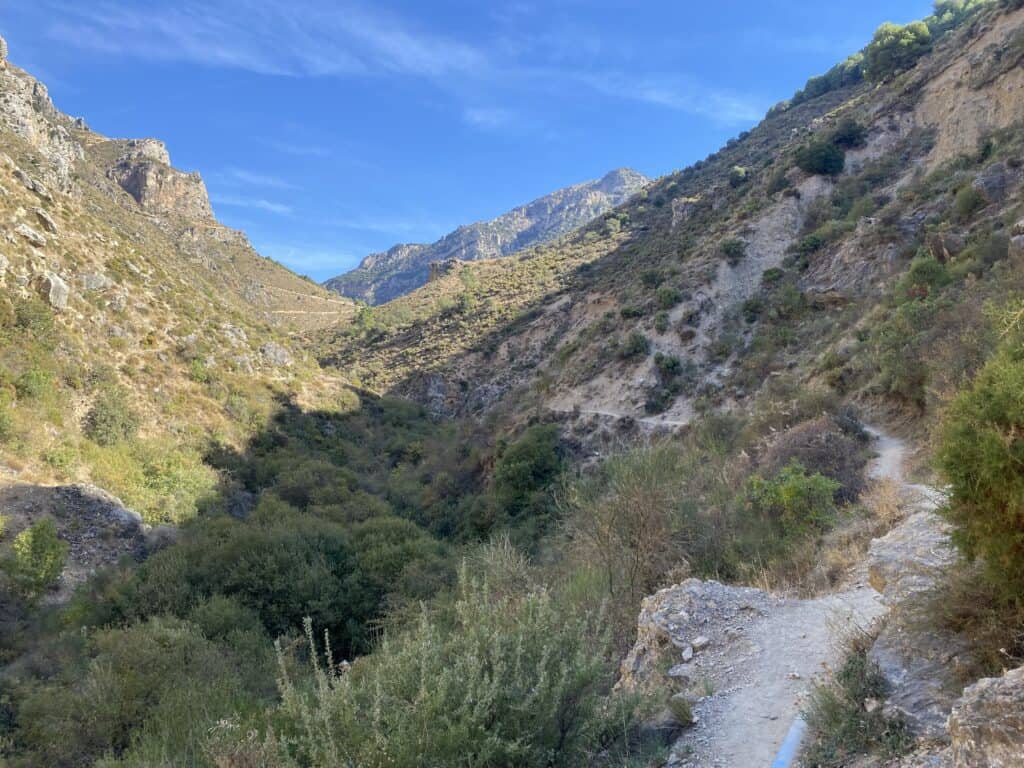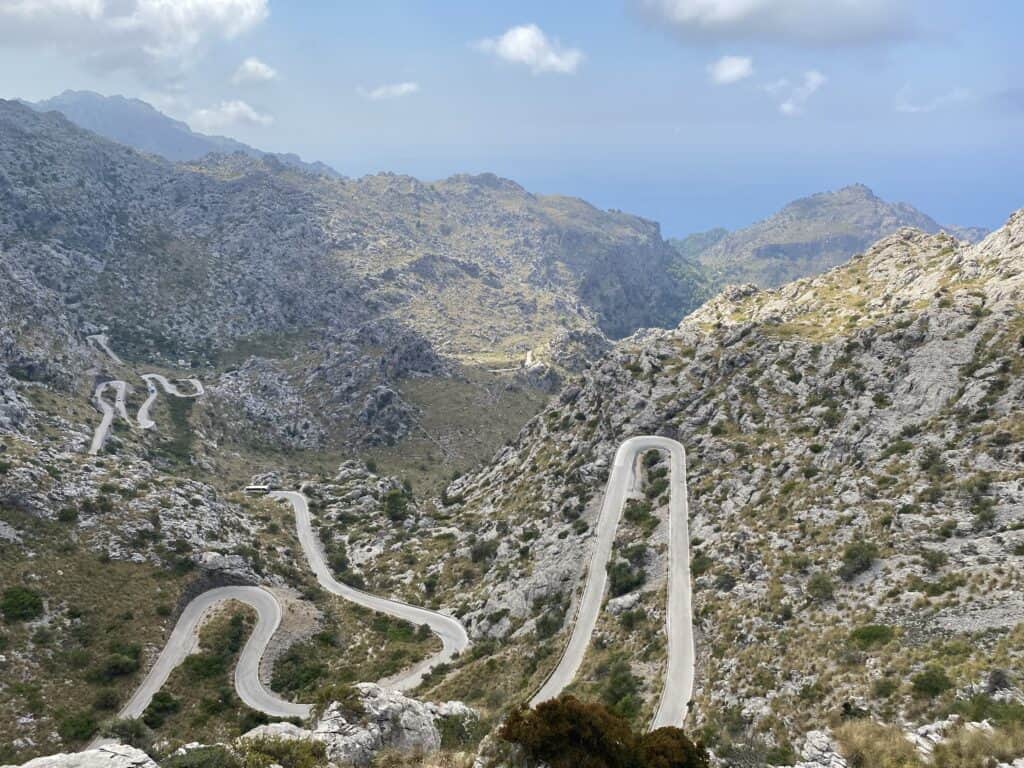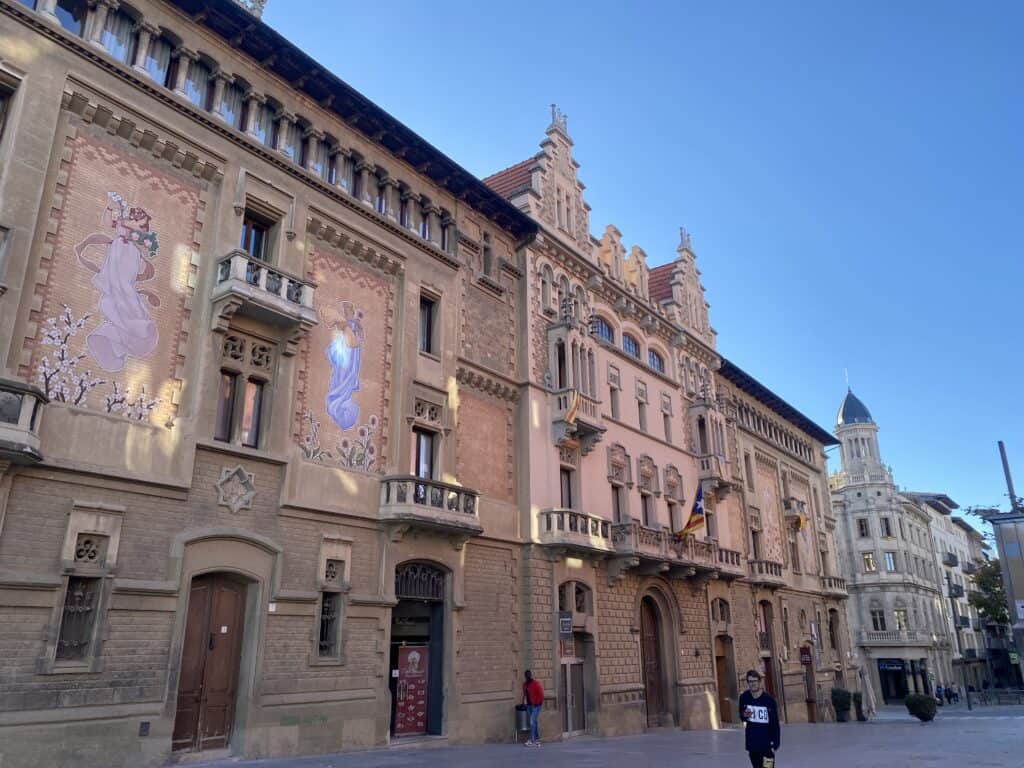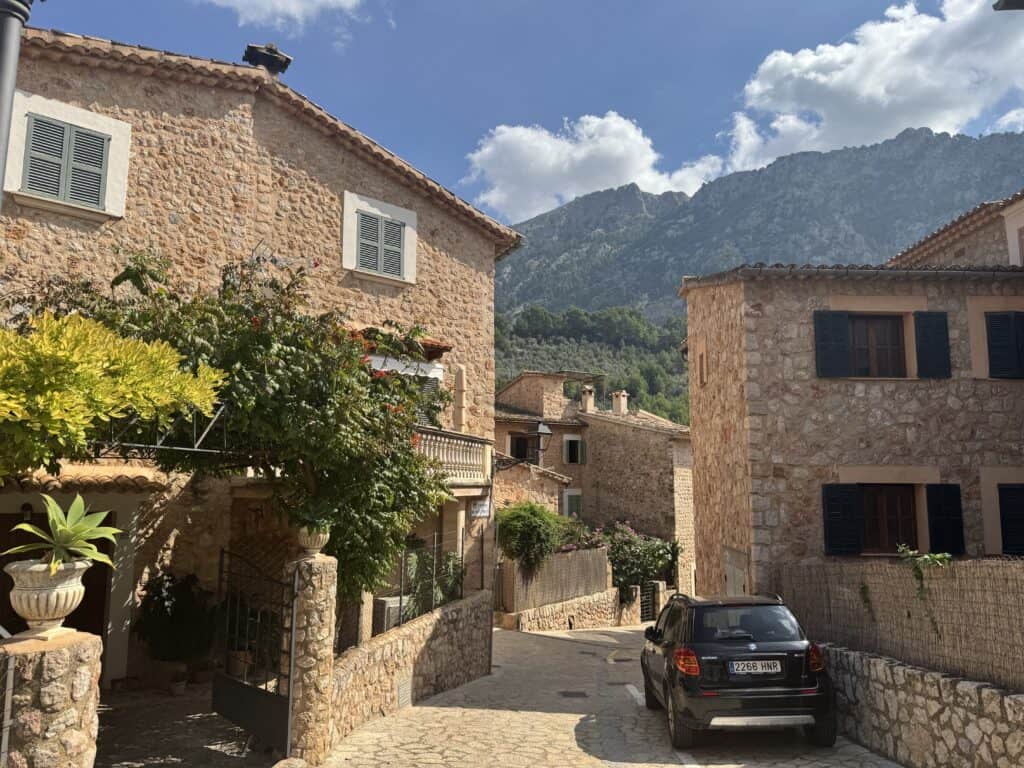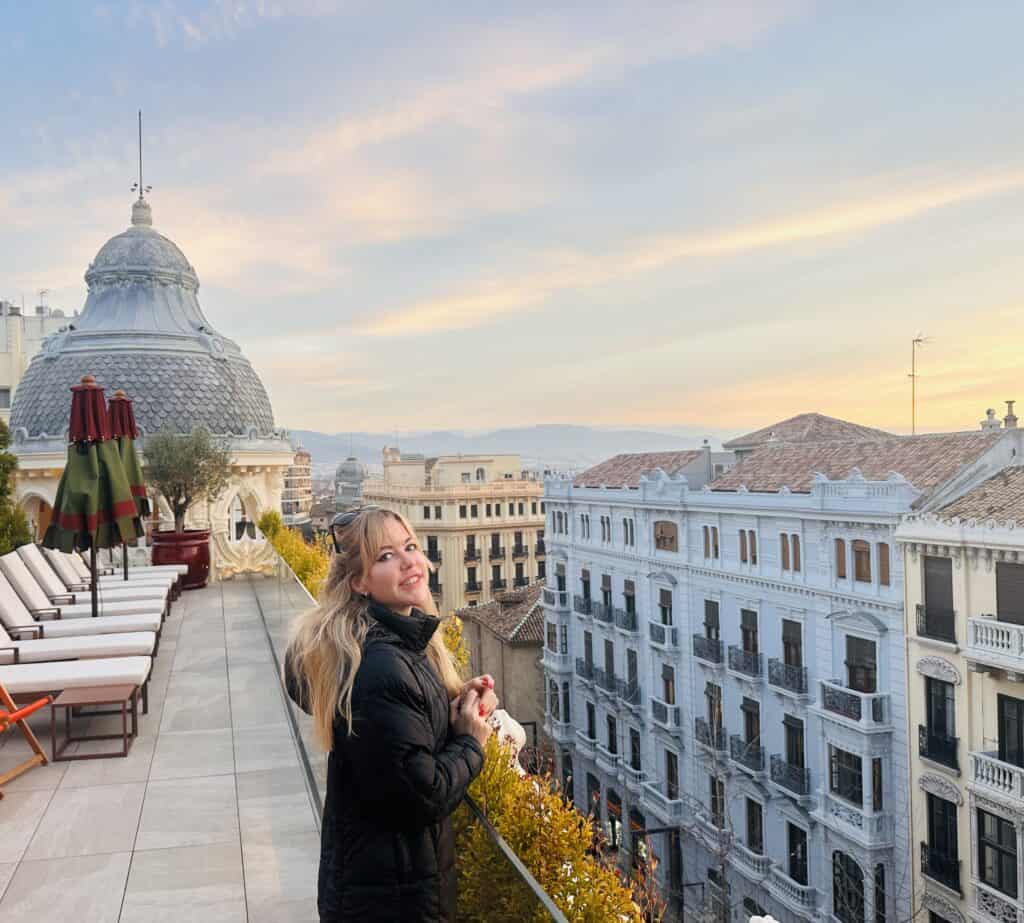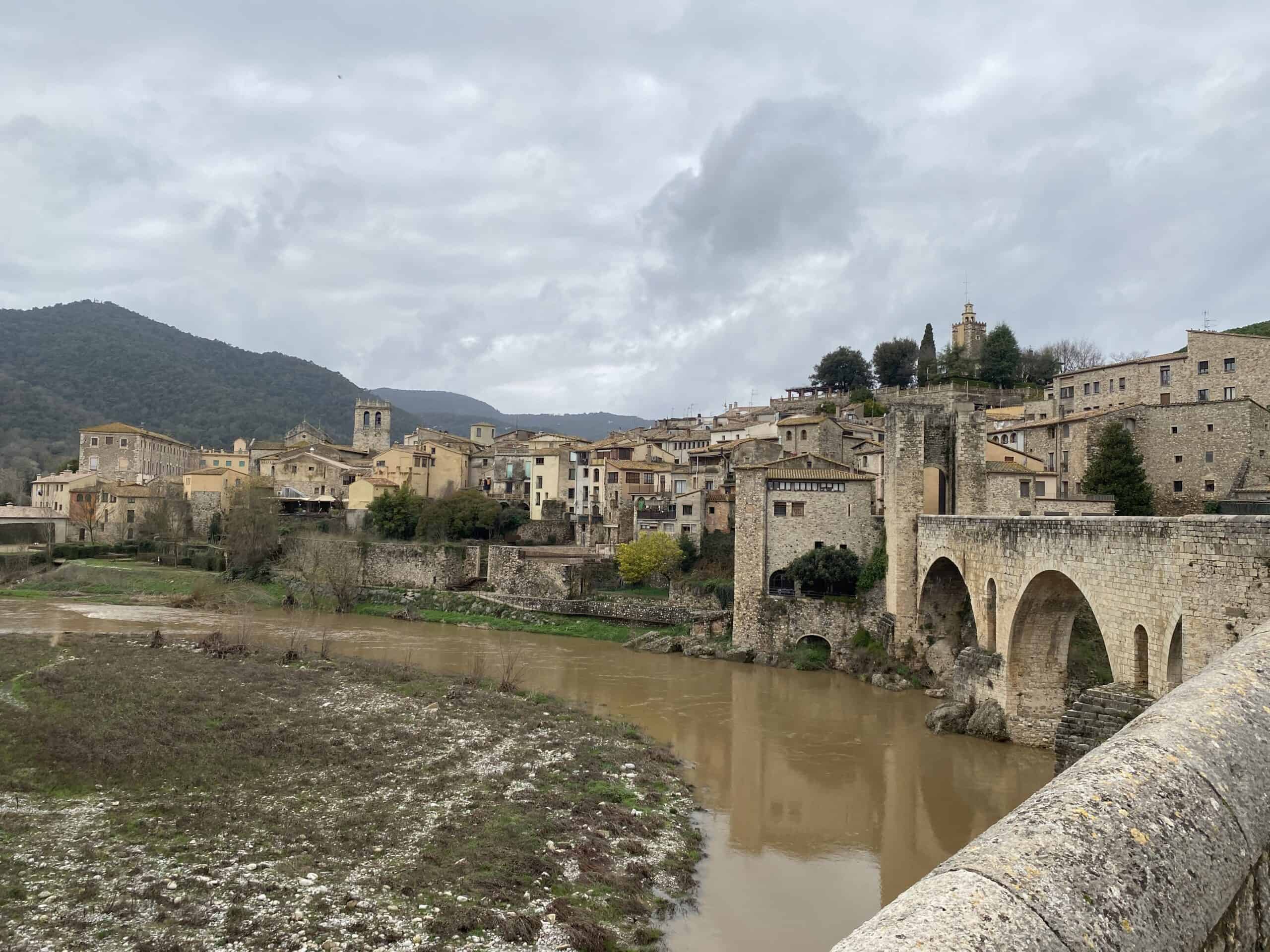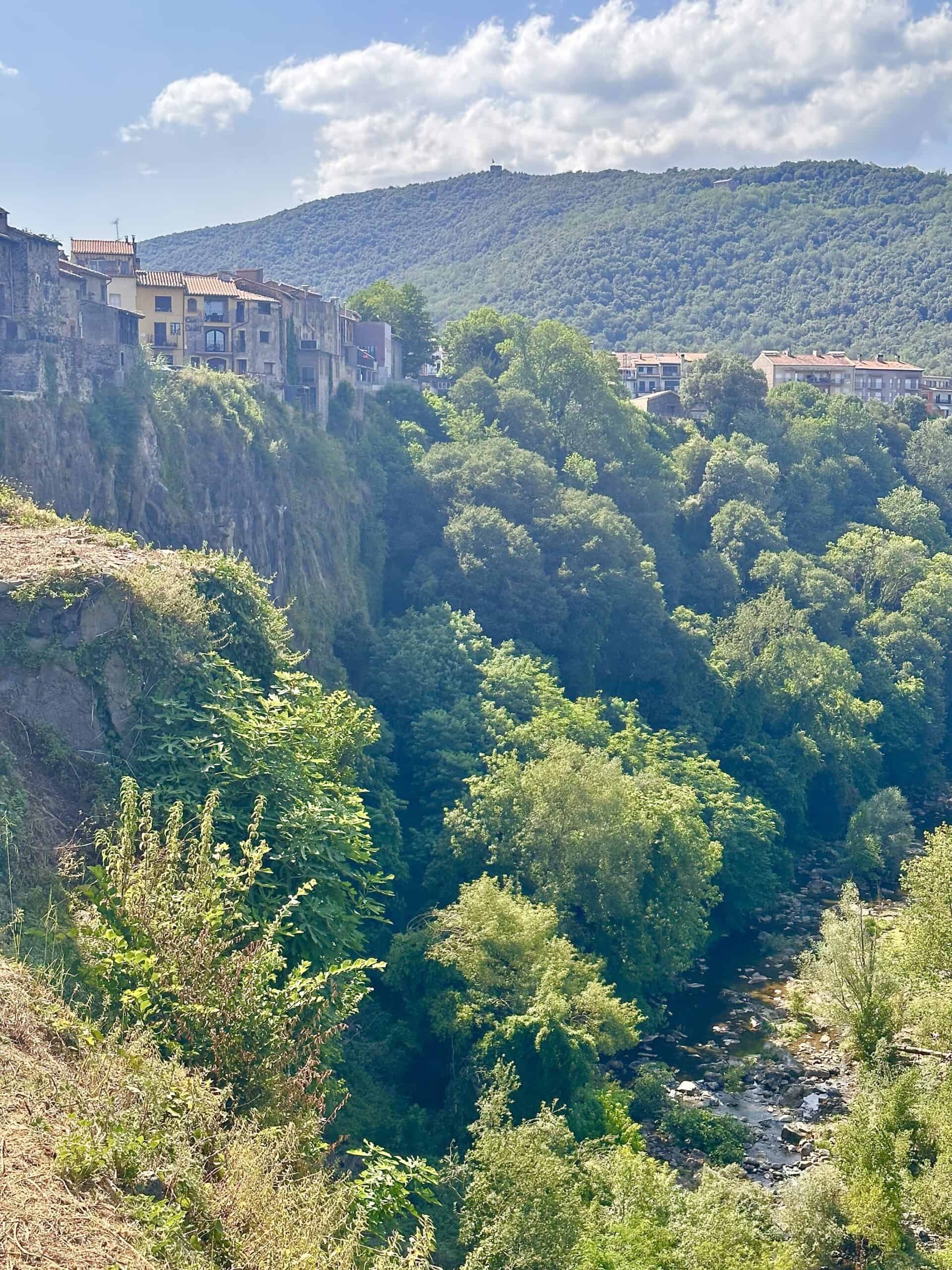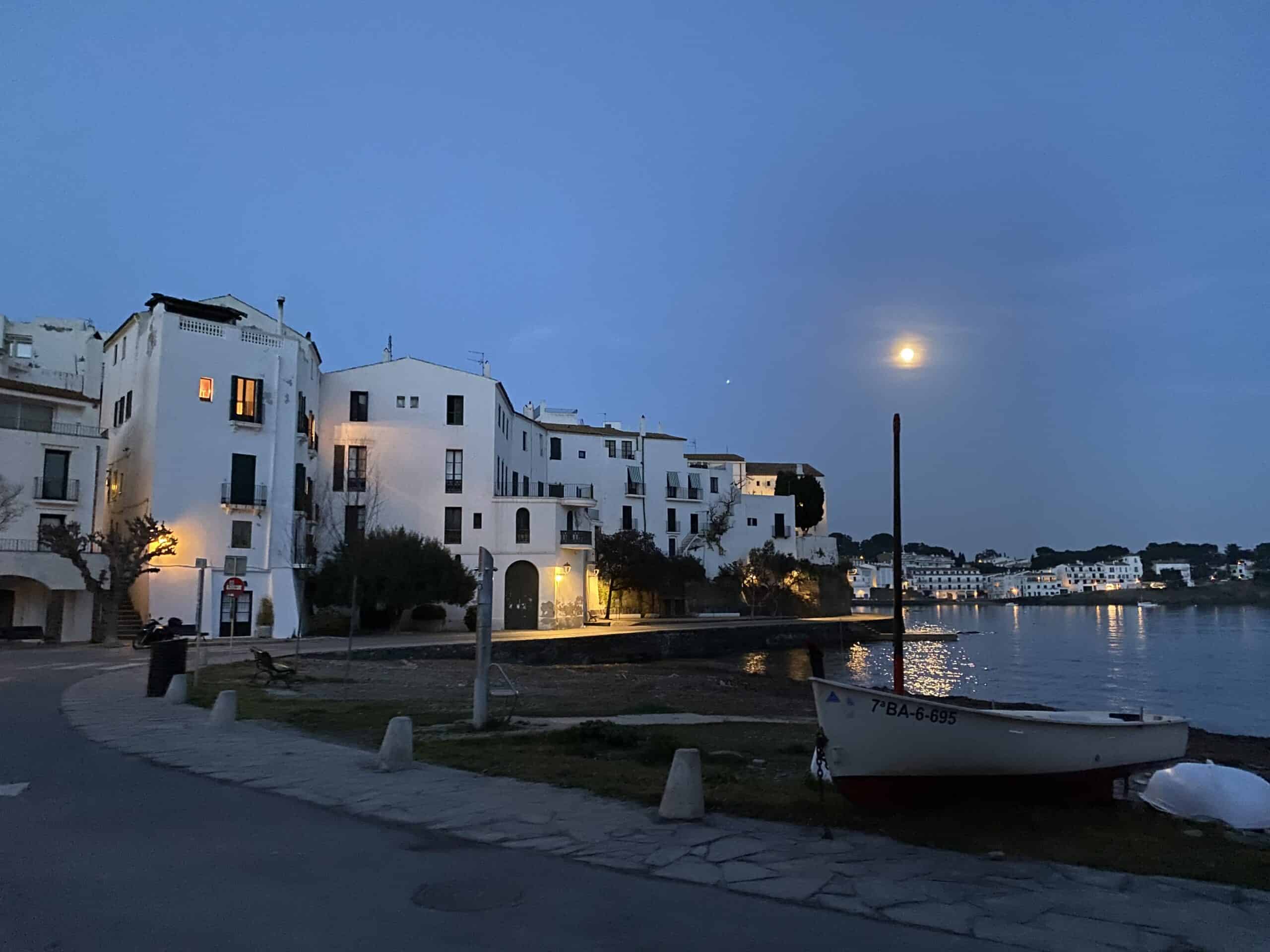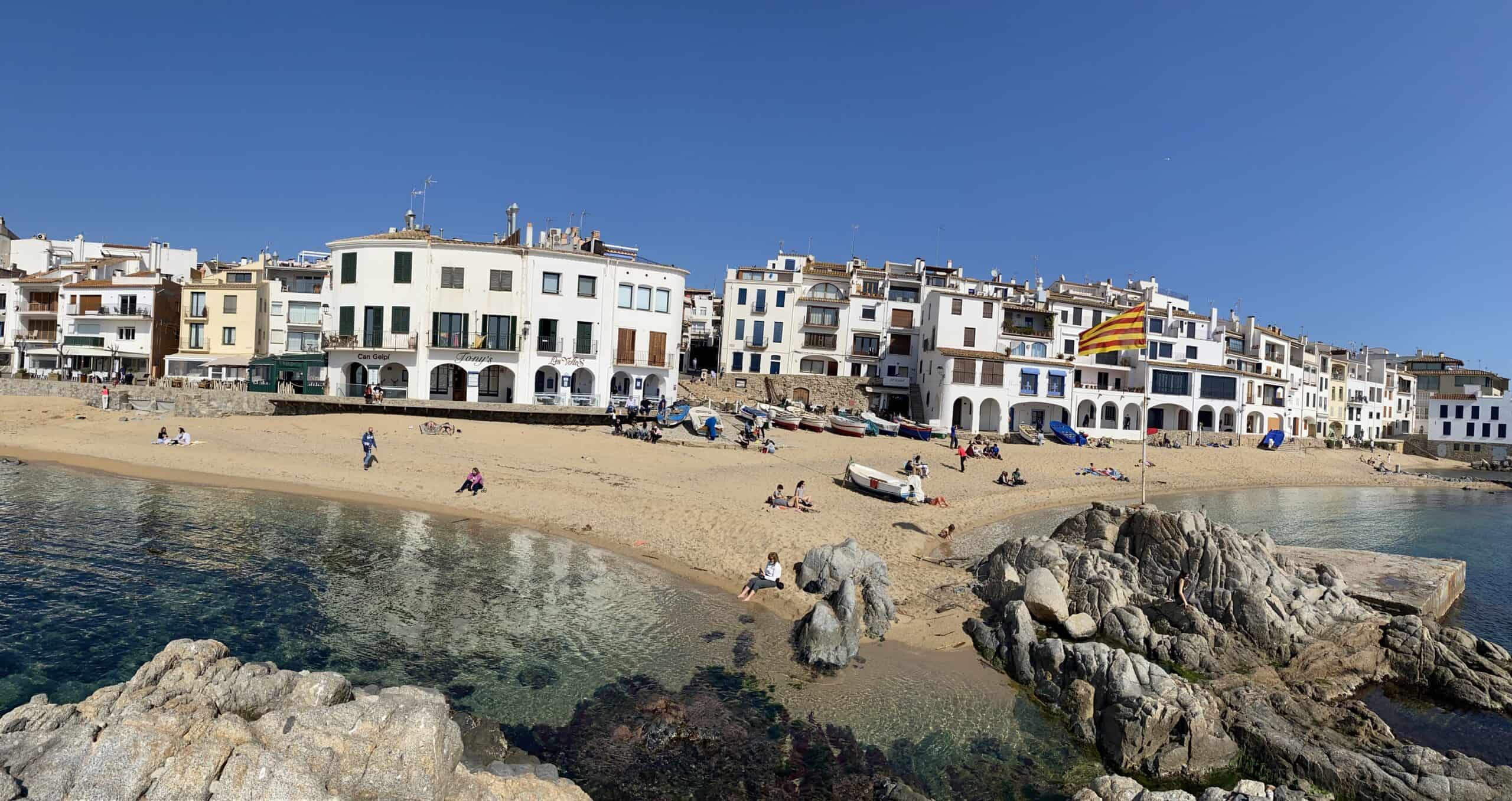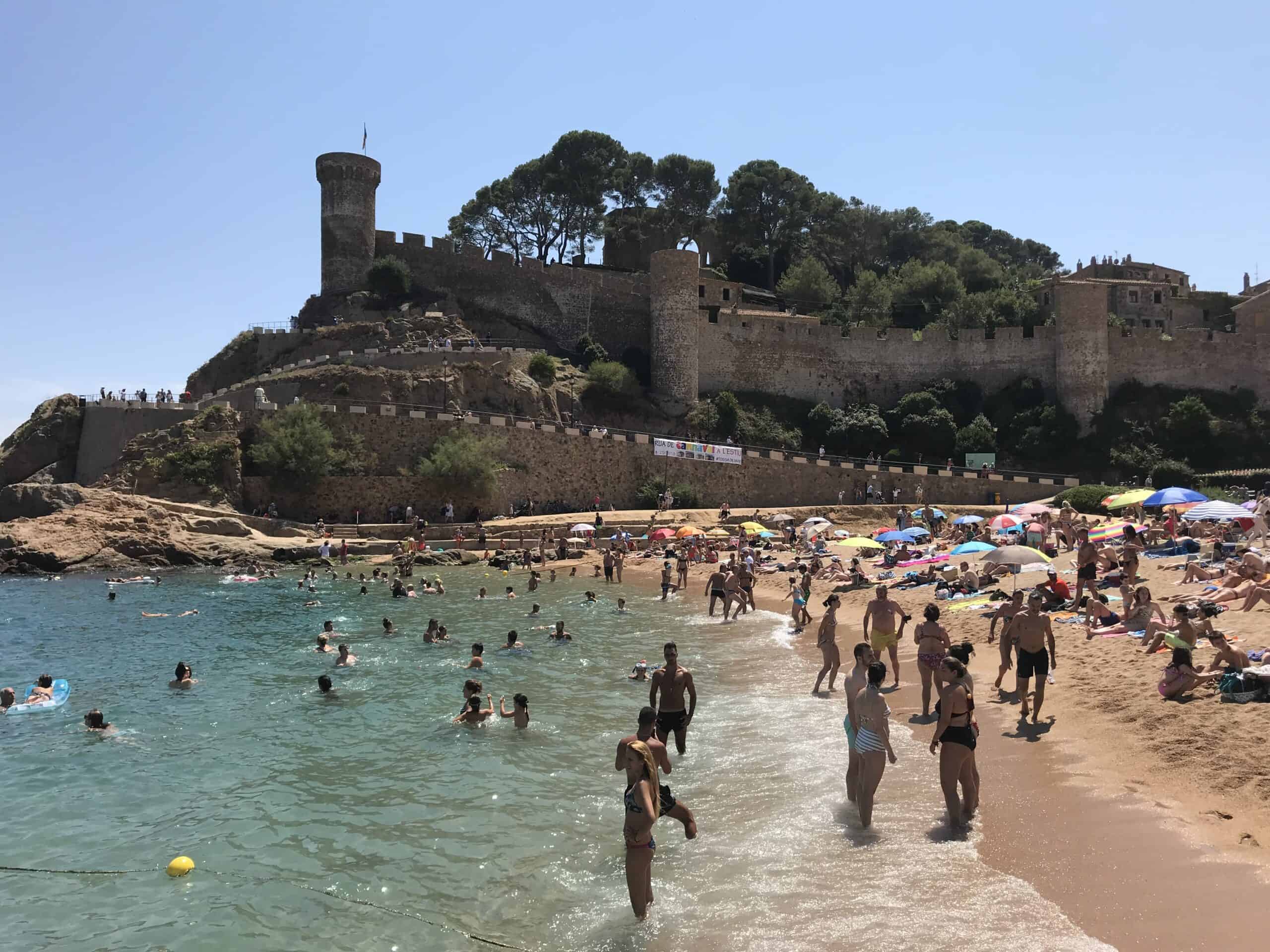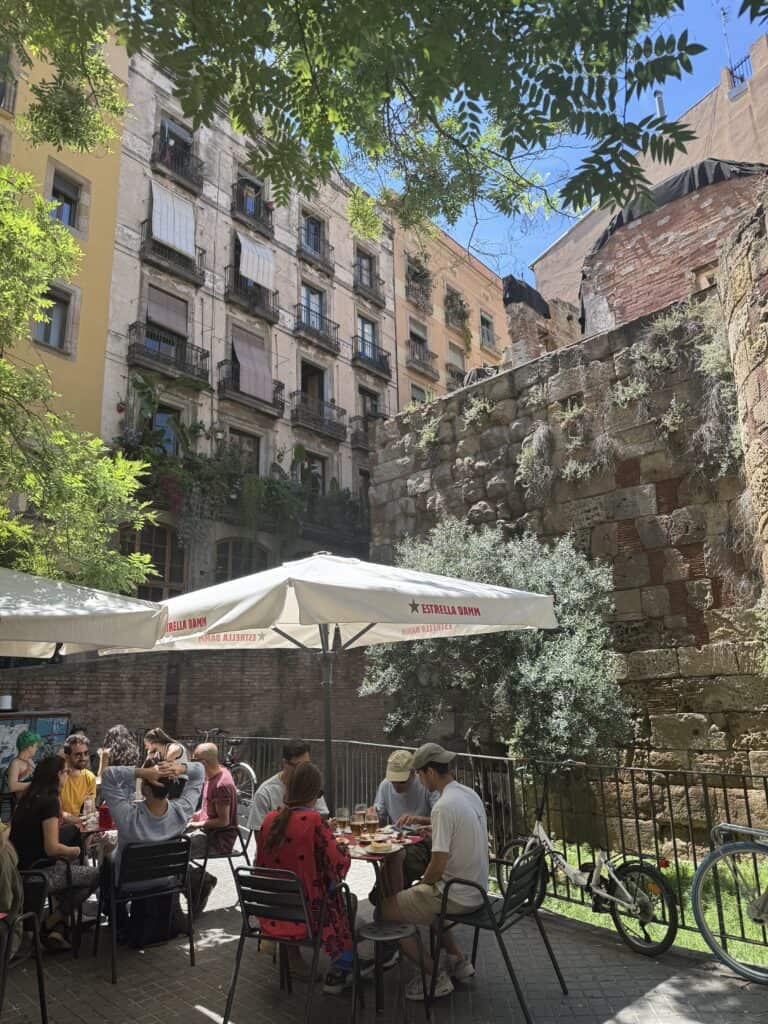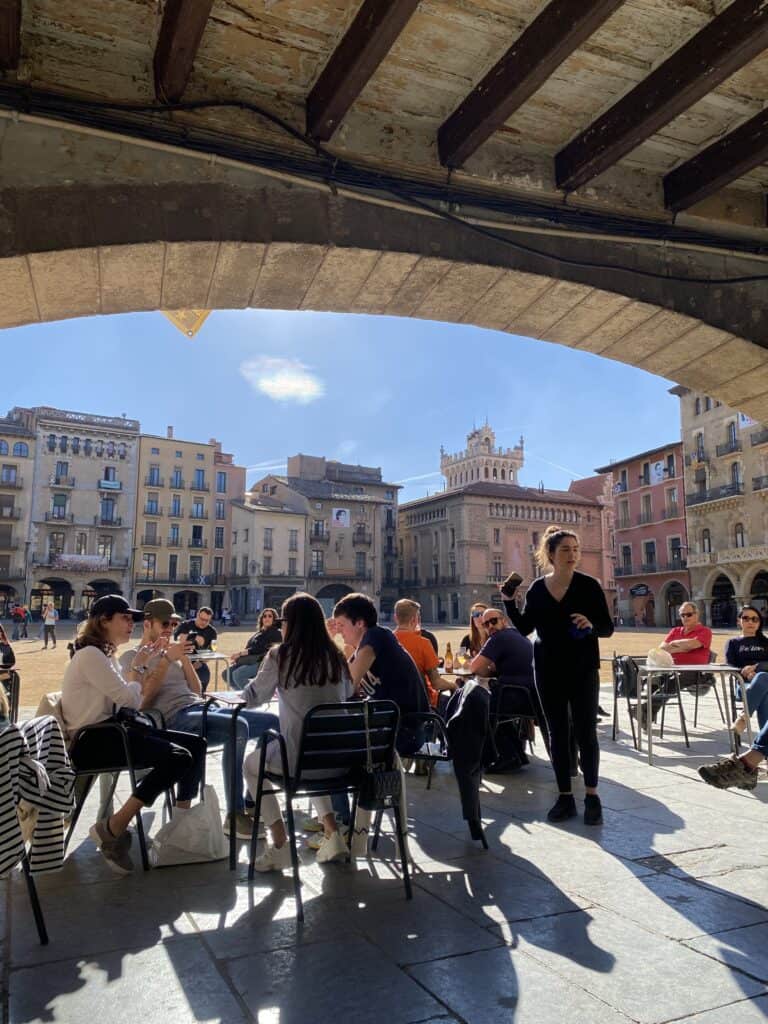In February of 2019, I packed my bags and moved to Barcelona.
Well, it wasn’t that simple. My visa was denied at first. But after an appeal, a 5-month waiting period and a lot of stress, it was finally approved.
Then came the challenge of applying for permanent residency 5 years later….
Multiple lawyers told me that I didn’t qualify. So I almost didn’t even bother trying.
But then I spoke with one lawyer (who had helped me get my non lucrative visa renewal in the past) and she told me that it would be approved. So I thought “ok lemme just apply and see what happens…”
Less than two months later, my permanent residency was APPROVED. Woot woot!
This means I now have the same rights as a Spanish citizen and can live in Spain indefinitely (yay!).
So out of all the places in the world…
Why Spain?
Well, I knew I wanted to live somewhere in Europe with year-round sunshine. And Spain offers that.
I was also drawn to the tapas culture and slower, laid-back lifestyle. Before the Spanish consulate general approved my visa, he asked me “why do you want to live in Spain?”
I said:
“Because in Spain, people work to live, they don’t live to work.”
After 6+ years living in Spain, I can say that that is definitely true. But I’d be lying if I said the country is perfect (no place is).
Curious what living in Spain is *really* like? Alright, let’s dive into it. Starting with…
The pros of living in Spain (aka the reasons why I choose to live here)
1. It’s affordable
While it’s gotten a lot more expensive post COVID, Spain is still very affordable compared to the US. I have a small studio in Barcelona (one of the most expensive cities in Spain) and I spend around 2300 euros per month on ALL of my living expenses. In New York, 2300 euros would barely get you a room.
Eating out is affordable in Spain as well. In Barcelona, you can get a full-course lunch meal for 12-16 euros (drink included). Dinner tends to be a bit more expensive but I normally never spend more than 20-30 euros. Maybe closer to 40 euros at a more high-end restaurant.
If you want a really inexpensive meal in Barcelona, get pinchos in Poble Sec! Pinchos are little snacks served on bread that normally cost between 1 to 3 euros each.
They look a lil’ something like this…
Yumm.
The other nice thing about Spain? The price you see is what you pay. So you don’t have to add on tip or tax to every bill. Everything is included (hallelujah).
2. Healthcare is (basically) free
Spain has universal healthcare which means everyone is guaranteed access to the healthcare system. Regardless of income.
I have both private and public healthcare insurance in Spain. Public healthcare is completely free but you have to wait a bit longer and don’t have direct access to specialists (you have to go through your GP first).
Last year, I paid around 800 euros per year for my private health insurance plan (DKV). That price covered all doctor visits and medical tests. MRIs, ultrasounds, bloodwork… you name it. Everything was included for that price. Even fertility tests. There were no copay or hidden costs.
3. The consumer safety regulations are stricter
The EU has already banned 1,300 toxic cosmetic ingredients, while the US has only banned 11.
Crazy, right?
The EU has also banned certain additives, pesticides and chemicals from food that are still sadly legal in the US. That helps explain why the food in Spain tastes cleaner, fresher and less processed.

I still try to shop organic whenever possible, but it’s good to know that even the “regular” products are held to higher safety standards.
4. It’s safe
Aside from pickpocketing and petty theft, Spain is super safe as well. So I don’t have to worry about random acts of violence and mass shootings (because gun laws are much stricter in Spain).
5. It’s progressive
It’s funny to think that what was once such a conservative Catholic country is now leading the way in women’s rights and LGBTQ+ rights.
In 2023, Spain became the first European country to introduce paid menstrual leave. And in January 2025, they made another big step forward: Granting single parents double the paternal leave.
When I saw that headline, I’d never felt prouder of my adopted country. Especially given everything that’s going on in the US right now, it’s a relief to live in a place that actually protects women’s rights. And all human rights for that matter.
6. It’s close to so many other countries and cultures
One of the best things about living in Spain is living in Europe — and being just a short plane ride away from so many different countries and cultures.
Flights within Europe can be super cheap as well depending when you fly and how far in advance you book. For example, I just did a quick search on Google Flights…
And found tickets from Barcelona to London and Paris for just $30 (round trip) in May.
7. The food and wine is amazing
Even simple dishes like pan con tomate or patatas bravas taste amazing because of how fresh and high-quality the food is.
Oh and the wine… dangerously cheap (like 4-5 euros a glass… or less). And always so good.
8. Public transportation makes it easy to get around
When I lived in California, I hated the fact that I had to drive everywhere to get around (that was one of many reasons why I left).
In Spain, you don’t need a car (unless maybe you live in the countryside or a small town).
In Barcelona for example, you can get around via bus, metro or the city’s bike system, Bicing (my preferred method).
If you want to go to Costa Brava (the coastal region of Catalonia) or another city in Spain, you can hop on the train. Granted, there are some parts of Costa Brava that you’ll need a car to get to — but you can always rent a car if you want to take a weekend getaway somewhere.
9. There is so much beautiful nature (and endless outdoor activities)
Spain is a nature lover’s dream. Along the coast, you’ll find calas (small, hidden coves) with crystal-clear water and dramatic cliffs that plunge into the sea…
Inland, you’ve got mountains, national parks and even deserts to explore…
If you’re into outdoor activities, you’ll be in heaven in Spain.
You can ski in the Pyrenees near the French border… or down south in Sierra Nevada near Granada.
Love hiking? Me too 🙂 You could try the legendary Camino de Santiago… explore the dramatic peaks of Picos de Europa… or wander the countless trails just outside cities like Barcelona, Valencia and Madrid.
Prefer the sea? You could go snorkeling in the crystal-clear coves of Costa Brava… kayaking around the Balearic Islands… or kitesurfing in Tarifa, the wind capital of Europe.
Wherever you are, adventure is never far away.
10. There is sunshine year-round
The Costa del Sol (south of Spain) gets 320 days of sunshine per year. Barcelona falls closely behind, with 300 days of annual sunshine.
Winters are mild in Spain and it never gets too cold (unless maybe you go to the Pyrenees). In Barcelona, for example, I’ve never needed a hat or gloves. Even in the colder months, you’ll see people out and about. Enjoying coffee on terraces, walking by the beach, and soaking up sun. The weather makes it easy to stay active and spend time outside all year round.
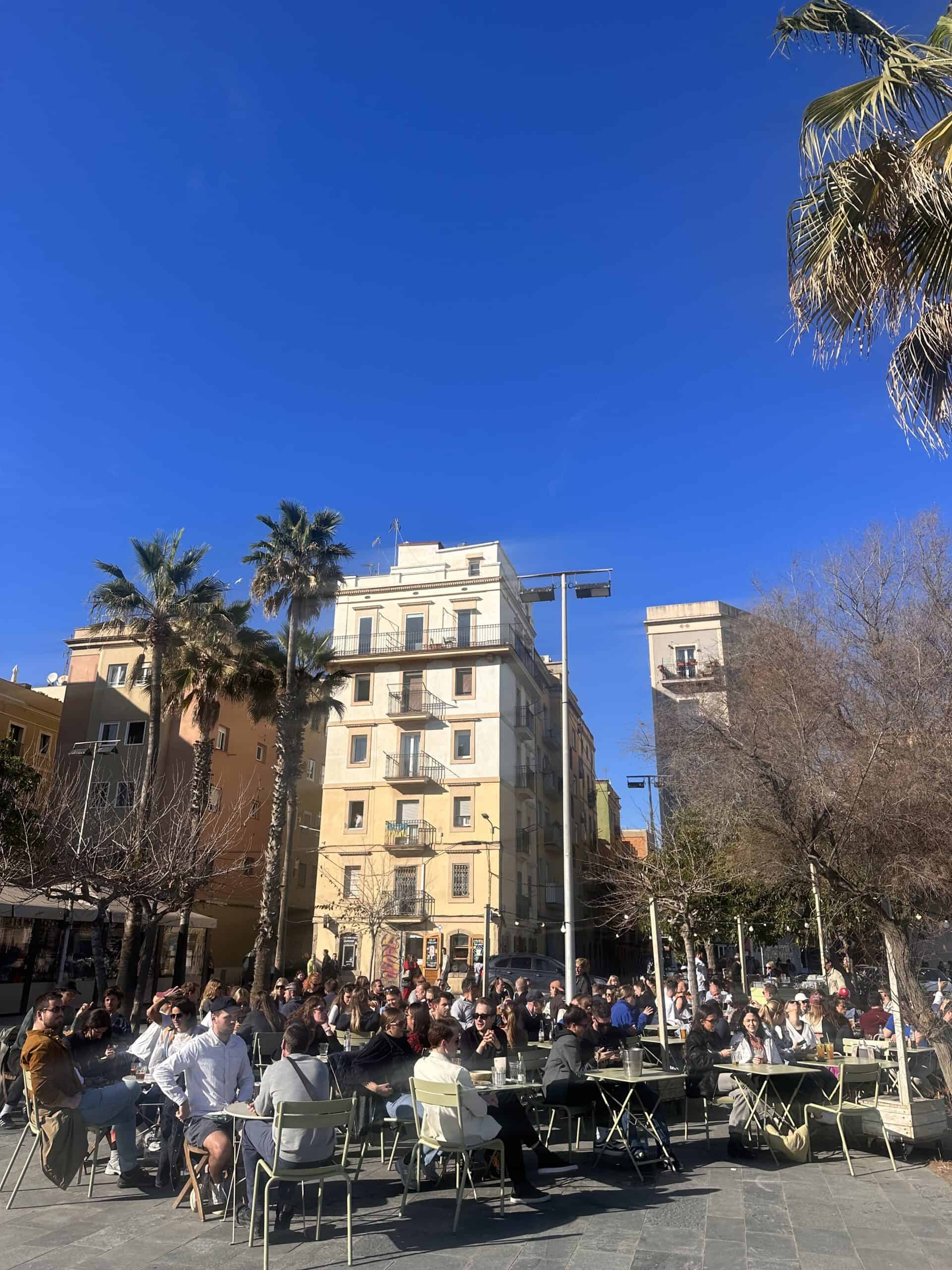

11. It’s very kid-friendly (and a great place to raise a family)
I don’t have kids but if I did, I would definitely want to raise them in Spain. There are playgrounds everywhere. And nurseries are free for kids 2 years and older.
You’ll often see kids out late with their parents, playing in plazas while adults socialize. In Spain, children are included in adult activities. Not segregated into the “kid’s corner.”
12. You’re surrounded by history, culture and beautiful architecture
Which makes everyday life *much* more fun and interesting…
13. There are countless villages and medieval towns to explore
Close to Barcelona, you’ve got Rupit i Pruit…
Besalu (pretty even on a dreary day!)..
And (one of my favorites) Castellfollit de la Roca…
Along Costa Brava, there’s the white-washed village of Cadaques…
The ancient fisherman’s village of Calella de Palafrugell…
And the medieval walled town of Tossa de Mar…
All of which make for perfect weekend getaways.
14. People work to live rather than live to work
When my friend visited Spain from Portugal she said:
“Wow, the Spanish really know how to live.”
And she’s right. The Spanish prioritize family and social life over climbing the career ladder and making money.
That’s why people take 3-hour siestas and vino-filled lunch breaks in the middle of the day.
It’s why many businesses slow down (or close) for most of August.
It’s why you’ll see people (ok, mostly men) having beer in the mornings to start their day.
It’s why employees are entitled to 14 public holidays per year and 30 calendar days of vacation per year.
And it’s why you’ll always see people on the streets every day of the week. Enjoying a coffee (or vino) on a terrace… dancing in plazas to live music… or meeting friends for drinks.
Check out this random street party I stumbled upon in Barcelona last spring:
Street parties like that are the norm in Spain. Especially in the summertime.
When Spain had a massive power outage last month (while I was in Bali), I wasn’t surprised to see reels showing people’s reactions. Instead of panicking or stressing out, they were out in the streets celebrating. Dancing, playing music and throwing block parties.
What could’ve been a stressful, chaotic situation became an impromptu celebration. Only in Spain lol.
And those are the reasons why I love living in Spain.
Ok now that we’ve covered the good, let’s dive into the bad…
The cons of living in Spain
1. Most apartments are old and not well insulated
Compared to Northern Europe, the apartments in Spain are old and run down (for the most part). The walls are thin and the apartments aren’t well insulated, which means noise travels easily.
I’ve lived in apartments where I had to sleep with a noise machine and ear plugs… but still could hear the street noise. Not ideal if you’re a light sleeper like me.
Unless you have heating or AC (a luxury in Spain), poorly insulated apartments can get freezing in the winter and unbearably hot in summer.
2. It can be noisy in the cities (due to the constant construction)
3. Electricity can cost an arm and a leg
Someone once told me that the Spanish specifically design the buildings to be less energy efficient (thereby increasing your bill). So if you’re in an older apartment and you use heating or AC, just be careful because you might be hit with a big surprise when your electricity bill comes in the mail.
I don’t have AC or heating in my apartment. But in January, my landlord lent me a portable heater that I used on and off for a few days. It was supposed to be “energy efficient” (or so he told me).
Well, he texted me a few months later and said that the bill (which normally costs around 50 euros) was over 200 euros! I can only imagine what the bill would have been if I had used it 24/7…
That’s the last time I’ll be using any sort of heater (or AC) in that apartment!
4. Taxes are high
If you live in Spain, you can expect to set aside a hefty portion of your income to taxes.
Not sure about other nationalities but as an American, you’ll have to pay taxes twice: both to the US and to Spain. BUT Spain has a double taxation agreement with the US. Which means you’ll only pay Spain the difference between your American tax bill and what you owe Spain (since Spanish taxes are always higher).
5. Salaries are low (and unemployment is high)
This obviously won’t affect you if you’re working remotely. But if you plan on working in Spain, your salary will likely be much less than it would be in the US or other European countries.
In Barcelona, for example, the minimum wage is 1,184 euros per month (as of 2025). Nowadays, you can barely even rent an apartment for that price. That’s why many Spanish people have flatmates – at least until they start dating someone and can share the cost.
You’ll probably find it difficult to find work as well, since the unemployment rate in Spain is high. So I highly recommend finding a remote job before you come (if you don’t have one already). Or becoming a freelance copywriter like me!
6. There are limited veg options
I was vegan for a year and during that time, found it quite difficult to eat out at times. There are plenty of vegan restaurants in Barcelona. But at traditional restaurants, I found my options to be much more limited. Patatas bravas and pan con tomate (tomato with bread) became my go-to’s.
7. It can be frustratingly difficult to find an apartment
If you move to a big city like Barcelona, Madrid or even Valencia, prepare yourself: It is NOT easy to find an apartment to rent. But I suppose that’s the case with many big cities nowadays.
One issue is that many landlords require a work contract in Spain. If you don’t have that (join the club), you’ll either be immediately eliminated or have to compete with all the people who do have work contracts in Spain.
I’ve rented two apartments in Barcelona under my name. For the first one, my ex boyfriend’s friend (who had a Spanish passport and work contract in Spain) co-signed the contract. He was really nice to do that though… I’m not sure that many people would be willing to do that unless you are a *really* good friend!
For my current apartment, I managed to find a flexible landlord. I showed him a screenshot of money I had saved and invested (more than enough to cover a full year’s rent) and that was enough.
The Verdict: Is living in Spain worth it?
Well you can probably guess my answer to this lol.
100% (or I wouldn’t still be here)!
Don’t get me wrong, I definitely get fed up with things from time to time (like my old, run-down apartment). But for me, the pros of living in Spain far outweigh the cons.
If you’re after year-round sunshine and a better quality of life, Spain is hard to beat.
Want to move to Spain but not sure how? Check out this blog post on how to make the move happen.
